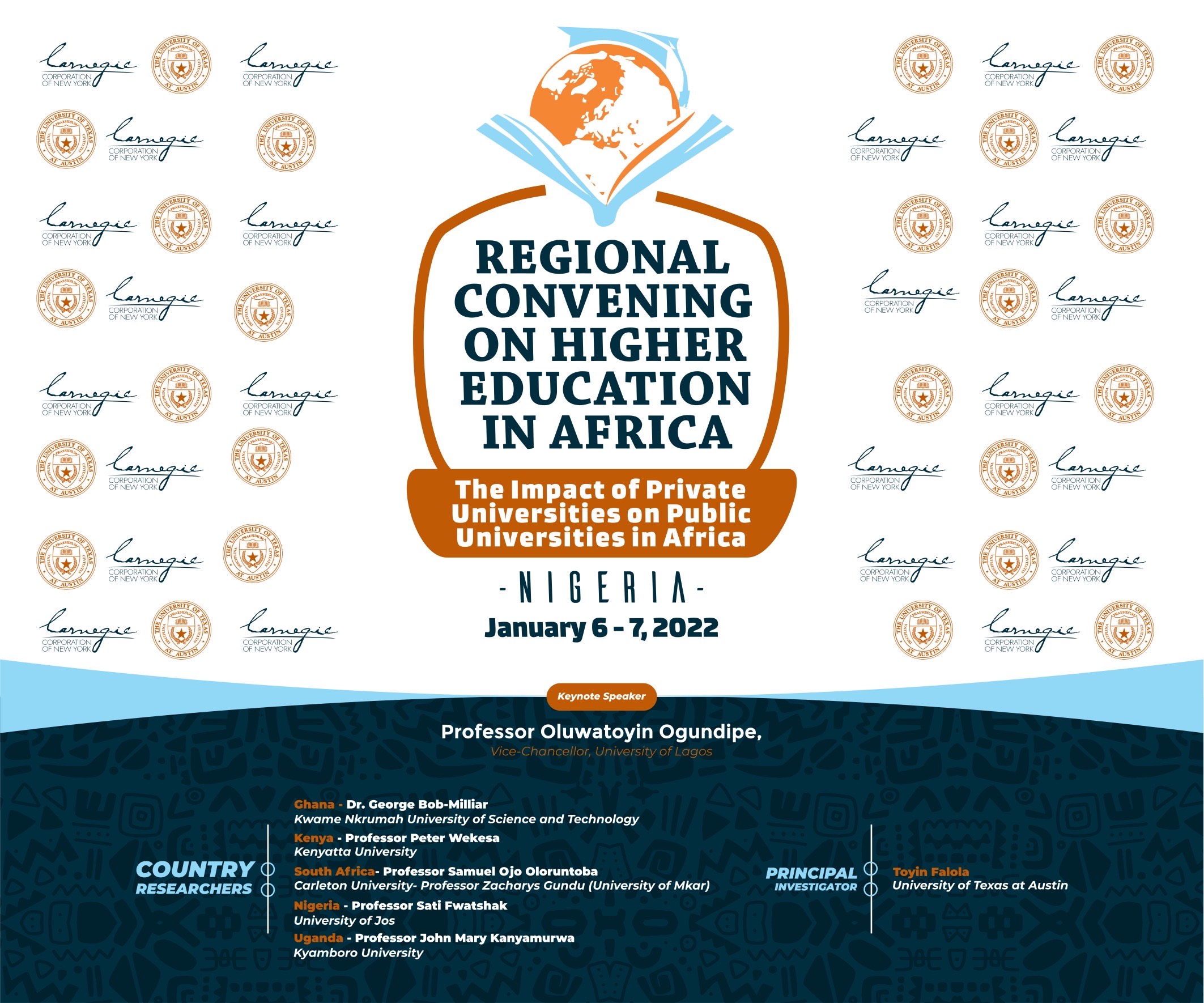The conference by the University of Texas at Austin (supported by the Carnegie Corporation) is an ambitious and passionate move to redesign, restructure, and reform university education in Africa. When I chose to shake the roots of university education in Africa and catalyse the reformation I envisioned, some issues did not sit well with me. I looked at how African youth are making waves in different fields of endeavour — entertainment, fashion, software development and IT, cryptocurrency and blockchain, social media influencing and influencer marketing, affiliate marketing, among others—and shook my head in lamentation at the realisation that these skills are not the resultant effects of university education. This is not to imply that the young people who are doing exploits in these fields did not attend universities. In fact, now more than ever, there is a scramble for university education among the African youth. Year after year, examination bodies such as Nigeria’s Joint Admissions and Matriculations Board (JAMB) continue to record an increase in the number of applicants. The youth are still clamouring for higher education, and as much as the concept of education as against schooling might be lost on the typical African youth, they still go to school. However, several factors in Africa’s university education system have made it impossible for universities to take an active role in the development of many African youths.
These young ones are making waves in technology, founding investor-backed startups that are proffering solutions to various problems across Africa and all over the world — from Pharmatech to Fintech to Agritech, to mention a few. We have African youth making waves in the entertainment industry — worldwide sensations who are taking Afrobeats to several countries around the world, winning international and national awards, owning a sizeable chunk of the traffic generated by famous streaming platforms such as Netflix, among other things. There are excellent African youth in sports — representing their countries at the Olympics and making pro teams in different sports at diverse teams throughout the world. The evidence is there all around us! Yet, these young ones are taught at universities where simple tech solutions such as result management systems or financial management systems are still light years away from manifestation. What a contrast!
Contributions from the several panelists who were present on the first day of the conference held at the beautiful campus of Babcock University show that there are similarities in the challenges of university education in Africa. In many of the countries represented, public universities have the bulk of the market share when it comes to university education, with private universities holding but a small fraction. For instance, private universities are currently not common in South Africa and are only recently trying to surface. Nonetheless, we see that private universities are making their presence felt in the university education system.
While many members of the panel were able to establish the lack of adequate funding as one of the fundamental problems militating against university education in Africa, it was established that other factors will continually drag university education in Africa below its goals even if adequate funds were provided for the running and administration of these institutions of higher learning. Thus, the reformation of university education in Africa goes beyond funding. Can funding suddenly make universities more invested in what their students eventually become? If adequate funding were provided today, does that mean we would be able to say in the near future that African universities contributed to the making of tech entrepreneurs, blockchain experts, renowned entertainers, and innovative scientists?
The decadence of the African society in itself is one of the major causes of the current state of the African university education system. Prof. Ayo Olukotun, a renowned political scientist, described it as a decadent system managing decay, thus leading to problematic or corrupt outcomes. Yet, it appears that private universities are increasingly becoming adept at doing better. Are there things to learn from the private university sector?
Prof. Oluwatoyin Ogundipe, Vice-Chancellor of the University of Lagos, the keynote speaker, pioneered the suggestion of solutions to the malaise bedecking university education in Africa. He called for quality assurance assessment — not on paper — but one truly put into action. He urged governments to establish regulatory bodies that would truly be committed to quality assurance. If we are to interrogate the issue of quality assurance in universities across Africa, we will discover that its absence is one of the problems dragging African countries below the benchmark. Is it truly a problem of a lack of funding or a lack of management, quality assurance, and effective management of available resources?
Undoubtedly, private universities in Africa have impacted university education in diverse ways. One of such is the absence of strike actions in these private schools. Public university education in Africa, especially in Nigeria, is notorious for strike actions, which cannot be blamed on the striking workers since they are entitled to their earned rewards. Sometimes even, their clamours are not about their earned rewards, but about the development of the universities. Another factor is the quality of student experience. By their structure, private universities in Africa are more student-centred than public universities. These institutions understand the essentiality of students in the university education system; therefore, they make the system more student-centred. From the environment to the facilities and the teaching methods, the system should be designed to make learning easier and safer for the students.
Participants at the conference also highlighted one fundamental misconception about private universities in Africa. Private universities are often seen as profit-making establishments. But in reality, many of these private institutions are not necessarily more financially buoyant than the public ones. It is then more of efficiency and the effective management of the inadequate resources available. Since private universities are owned by individuals, organisations, or society, it becomes difficult to use resources indiscriminately without factoring in several options and possible consequences. It is easier for a university administrator in a government-owned university to mismanage funds than it is for an administrator in a private institution. Thus, private universities are not always smiling to the bank, as many people believe. Rather, they know how to put the available resources to use and achieve optimal results from their investment.
But why is this not so in public universities? Could the reason be the mentality that government-funded projects do not directly affect the financial stance of individuals? Is it the “it is not my money” mentality that allows public university managers to squander resources? If we so claim that public universities are not adequately funded, how do we account for the underutilised or unutilised assets? How do we account for the duplicity of assets? The ridiculous budgeting?
Management across various levels of the university system — from the Head of Department to the Dean, to the members of the Senate, to the Principal Officers — is one of the problems militating against public universities in Africa. One of the issues raised during the conference is the need to distinguish between academic and administrative excellence. A professor’s academic success is not a good gauge of whether they would be an excellent administrator, and this is one of the biggest dents in university administration. It was proposed that training and re-training of university staff members be done across different cadres, with leadership training and certification a prerequisite for holding administrative positions in the university system. It is myopic to allow leaders who have no fundamental knowledge of negotiation, communication and correspondence, crisis management, among other issues, into the system. A university administrator must understand the importance of scale of preference while factoring out personal benefits and objectives.
So, to what extent have universities impacted the societies they belong to? How innovative are our public universities? To what degree do they propose solutions to the society in which they are domiciled? Prof. Abdul Rasheed Na’Allah pointed out the importance of having universities as citadels of public good. This can be seen in how some private universities have contributed to the society they find themselves in. The gown-town relationship is symbiotic, and there is the need for a restructuring in the management of universities to allow for innovative ideas towards the reformation of public schools. The challenges being faced by public universities in Africa go beyond inadequate funding. The structure is decadent, and so are the results.
Furthermore, the role of donors and owners of universities — both public and private — cannot be handled with levity, especially in private schools. Prof. Jide Owoeye, a distinguished professor of International Relations and founder of Lead City University, pointed out the need to conduct university management and operations as strictly business while also allowing for the full functioning of all the organs of the university, including the Governing Council and the Senate. The founders need to be invested in their universities, though not to the point of infringing on the freedom given to the organs to function as they should.



